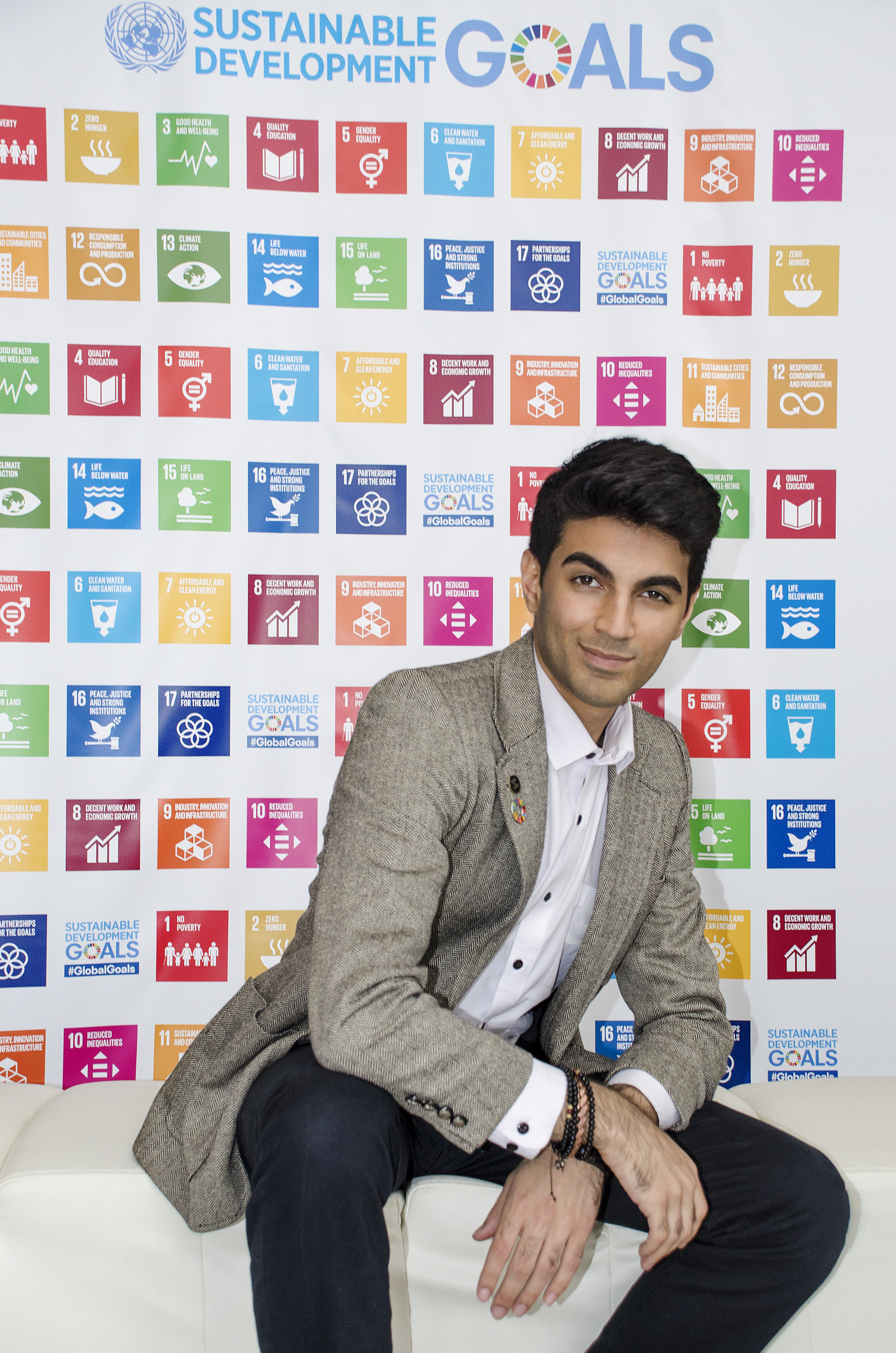Youth Are Shaping the Future of Climate Policy

Saad Amer is a UNA-USA Social Good Summit Blogger Fellow and attended the 2019 ECOSOC Youth Forum.
Joined by nearly 1,000 other youth advocates in New York on April 8 and 9, I had the honor of addressing youth at the 2019 ECOSOC Youth Forum. The Forum gives space to contribute to upcoming United Nations meetings, including the 2019 High-Level Political Forum (HLPF) on Sustainable Development and the 2019 ECOSOC Substantive Session.
The Forum held a thematic session to address SDG13, Climate Action, which is under review by the HLPF this year. Representing the United Nations Framework Convention on Climate Change’s (UNFCCC) youth constituency, YOUNGO, I spoke about the fact that we need to limit warming to 1.5 degrees by 2050. This means we can no longer delay climate action, and that we need aggressive action to halve carbon emissions by the ever-closer 2030 deadline.
As the Founder of Plus1Vote, a nonprofit organization dedicated to creating a more representative democracy in the United States, I stressed the importance of young people in making policy on climate change. I urged member states to think beyond typical two-, four- or six-year election cycles and to think about the long-term consequences of the policies they implement. This is particularly important given the fact that people younger than 18, who have no representation in electoral processes, will be impacted the most by climate change.
Climate change will inevitably create a series of winners and losers across the world. As a catalyst for both economic growth and loss, it is important that nations address inequities that are already arising. I pushed for member states to highlight the voices of women, children, LGBTQ+ individuals, indigenous communities, and disenfranchised populations who will be impacted by climate change, but lack representation in high level spaces.
Governments across the world will need to act decisively to ensure a just transition in dealing with the urgency of this crisis. I further advocated for investments in education, job growth and technological innovation. These forward-thinking priorities will help ensure we work toward a greener, more equitable, more sustainable world.
In light of the fact that global policies are still taking shape, it is important that young people continue speaking up. The results of the Forum will help guide discussions and youth involvement in the lead up to the Climate Action Summit later this year.




